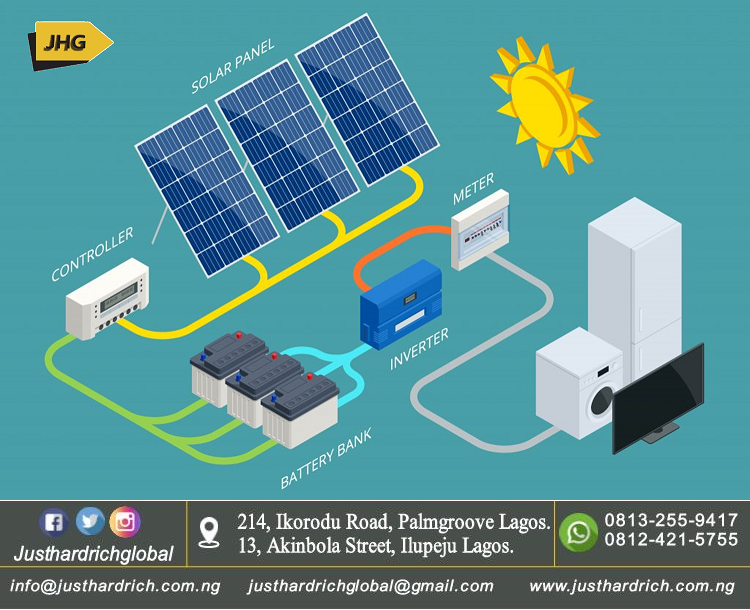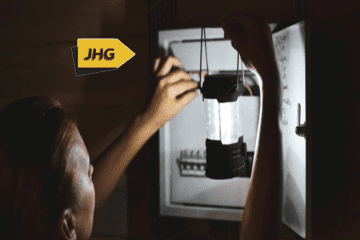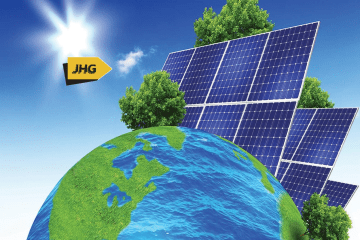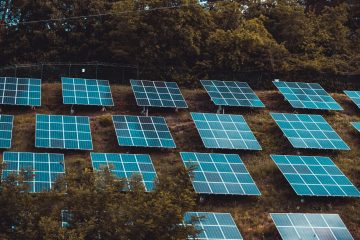Solar panels are a great way to produce renewable energy and help the environment. But do solar panels store electricity? The short answer is no since they don’t have energy storage characteristics.
Solar panels produce electricity when exposed to sunlight, which is then used to power your home or business. However, solar panels do not store electricity. Once the sun goes down, the solar panels stop producing electricity.
Therefore, it is important to have backup power sources, such as batteries if you need to use electricity at night or during a power outage. In this post, we’ll take a closer look at how solar panel storage works and how electricity is stored.
Why Doesn’t a Solar Panel Store Electricity?
Solar panels cannot store electricity because it lacks the materials capable of anything related to energy storage. The basic parts of a solar module have been discussed in our previous blog post.
Unfortunately, it does not include materials with properties of batteries, capacitors, or any other components that allow for the storing of electricity. So, it can’t store energy. It might be a breakthrough in the solar industry if they could integrate energy storage within solar panels in the future.
As for now, solar panels can collect sunlight and turn it into electricity. When paired with an energy storage device, solar systems can store all of the electricity generated by the solar panels, but not with solar panels alone.
How Can We Store Solar Energy?
Solar energy is an increasingly popular source of power, but the sun only shines during the day, and we can’t produce solar energy at night. If we want to store solar power for later use, we need to find a natural or man-made solution. There are two ways to store solar energy:
- Thermal storage: storing heat from the sun for later use;
- Electric storage: storing electricity that is used by our homes or businesses during peak hours for later use.
- Others like gravity storage and hydro storage: using solar power to lift objects or pump water to higher elevations storing potential energy.
Storing Solar Energy Using Batteries
Solar energy is a renewable energy resource that can be put to use in a number of different ways. It’s not only the most abundant source of natural energy but also has a very low cost and doesn’t produce any greenhouse gas emissions. So you might be asking, “How can we store solar energy?”
There are many ways that you can store solar power for later use, from the large-scale grid-connected battery storage systems used by commercial and utility-scale solar power projects to small-scale on-site battery systems for residential homes. In this article, we will explore how these two types of storage work and how they compare.
Important: Solar power is an effective way to save money on electricity bills. But the sun only shines so much. What if there’s a day when it doesn’t shine enough? How can we store solar energy?
Storage of solar energy is possible by using batteries. Batteries don’t last forever, though. They require maintenance and some of them need to be replaced periodically. There are also some expensive options that offer high-capacity storage for emergency purposes.
There are three major types of battery technology available for storing solar power: lead acid, nickel-cadmium, and lithium-ion. Each one has its pros and cons for how they work best in different situations. It’s important to consider your needs before deciding what type of batteries you want to
Batteries have a limited capacity, and the cost of storing large quantities of power makes it difficult to store additional energy from solar panels. Here, are some ways to store solar power as well as include its benefits in our everyday lives.
Storing Solar Energy as Heat
One way of storing solar energy is by using CSP or concentrating solar power. It utilizes mirrors, lots of them, to concentrate sunlight to a certain point or area.
The sun’s rays are reflected onto a receiver in a concentrating solar power (CSP) system, creating heat that is utilized to generate energy that may either be used right away or stored for later use.
As a result, CSP plants can be dispatchable or flexible possibilities for supplying clean, renewable energy.
What’s a Solar-Plus-Storage System?
You may not know it, but you’ve probably seen solar panels on some houses. Solar-plus-storage systems are the energy of the future. They offer a solution to help homeowners cut down on their energy bills by storing energy for use during times of peak demand.
Solar panels and energy storage devices are becoming more and more common these days. That’s because they’re both clean and reliable sources of electricity. However, it’s often hard to know which one is best for you. So, here is a quick guide to help you understand what solar-plus-storage is and how it works.
Solar power is a renewable energy source, which means that it can never be depleted. A solar plus storage system is required to store this energy for use at a later point in time. This solution connects your solar panels to a battery storage system installed on-site. The sun charges the battery storage system, which then releases the energy as needed.
How Does a Solar Panel Work?
Solar panels are devices that convert sunlight into electricity. This can be done in two ways: using photovoltaic cells to create an electric current or concentrating the sun’s rays with a lens to produce heat that drives a generator. Solar panels are usually made from silicon, a very good material for absorbing sunlight.
The photovoltaic cells in a solar panel are arranged in rows and columns, and they are connected by wires. Solar panels capture energy from the sun by absorbing it and converting it into a usable form.
When sunlight shines on the cells, electrons are released from their atoms. These electrons flow through the wires to produce an electric current. The more sunlight hits the solar panel, the more electricity is produced.
Solar panels are most often used to power homes and businesses, but they can also power vehicles, boats, and airplanes. They are becoming increasingly popular as the price of electricity continues to rise.
Solar panels are a clean and renewable energy source, and they do not produce greenhouse gases or other pollutants. And also, they don’t store electricity.
Battery storage is the most common way to store solar power
As solar power becomes more and more popular, people are looking for ways to store the energy generated by the sun.
One of the most common ways to do this is by using a battery. Here we will look at some of the benefits of using a battery to store solar power.
Effective and Efficient Way to Store Solar Energy
One of the main benefits of using a battery to store solar power is that it is a very efficient way to do so.
A battery can store a large amount of energy in a small space, making it ideal for solar power.
Stabilizing Power Grid with Solar Energy and Battery
Another benefit of using a battery to store solar power is that it can help to stabilize the grid.
When there is a lot of solar power being generated, it can cause the grid to become overloaded, leading to blackouts and other problems.
However, if some of that solar power is stored in batteries, it can help to stabilize the grid and prevent problems from occurring.
Environment-Friendly Source of Energy
Finally, using a battery to store solar power can also help to protect the environment. When solar power is generated, it does not produce any emissions.
However, when that solar power is stored in a battery, it can be used to power homes and businesses even when the sun is not shining.
This means that there will be less need for fossil fuels, which will help to reduce emissions and protect the environment.
What happens to excess electricity from solar panels?
Solar panels use the sun’s energy to create electricity. Electricity from solar panels is as clean as it gets and we love how this green power source can save you money too! But, what do you do with all of that surplus power? Well, here are some options:
- Sell excess energy back to the grid (Possible with net metering)
- Use electric vehicle charging stations (Possible with an EV charger)
- Install batteries to store power generated during the day for evening use (Possible with battery storage)
- Connect your solar panels to a home battery system (Available through Tesla, LG Chem, and Enphase)
- Run your homes
If power isn’t stored efficiently or used effectively, it can result in a major waste of energy. Solar power is a renewable resource that has helped combat climate change, create jobs, and keep money local.
Now, let me also present to you our previous blog post about excess electricity from off-grid solar systems here. If you want to dig more details into this topic, you might find that article useful.
Conclusion: Do Solar Panels Store Electricity?
Solar panels do not store electricity; they only produce it when exposed to sunlight. In conclusion, we saw that solar panels are not capable of storing the generated solar energy on their own. It needs a dedicated energy storage device that can be charged using the generated electricity from the PV panels.
The first step is to decide what you want to store the energy for. If it’s daytime energy, you’ll want to save for nighttime use or use it immediately. The second step is to decide on a battery storage system that suits your needs best.
Some batteries must be charged by the sun and others can be charged with power from the grid. Lastly, make sure your inverter can handle the power of your solar panels and batteries before anything else!




